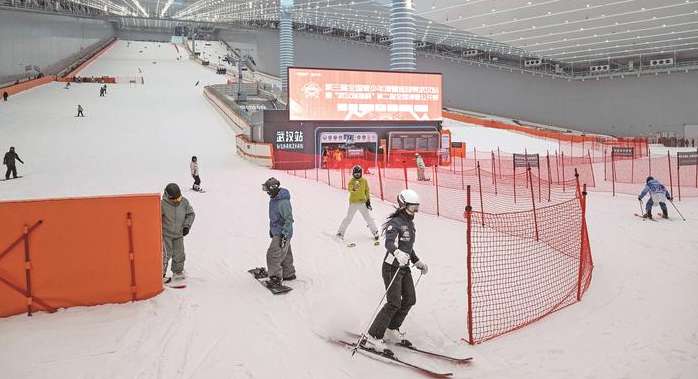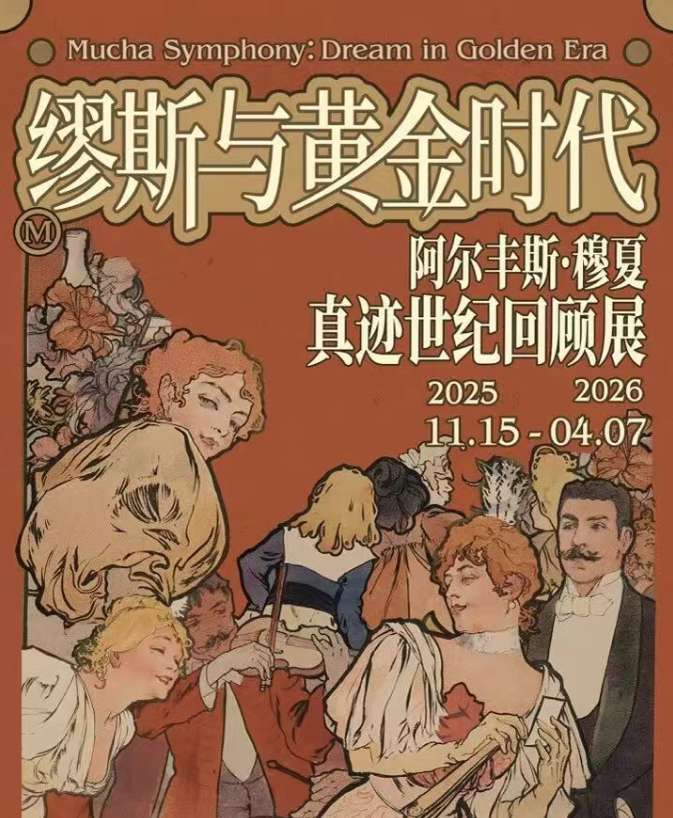1. Are children allowed to take the train alone?
According to the relevant provisions of Contract Law, children are not allowed to take the train alone in principle. They have to be accompanied by adults with full capacity for civil conduct.
2. How to buy child tickets?
An adult passenger can be accompanied by one child under 1.2 meters in height, free of charge. If there are more than one child under 1.2 meters, only one of them is free of ticket, while the others shall purchase child tickets. Children between 1.2 to 1.5 meters high shall purchase child tickets; those higher than 1.5 meters shall purchase full-price seat tickets.
Children are allowed (for free, or with charges according to the provisions above) to share berths with adult passengers who have purchased sleeping berth tickets.
From January 1, 2023, For children boarding with adults, child discount tickets shall be booked for those over 6 years old and under 14 years old; full-price tickets shall be booked for those over 14 years old. Each adult passenger with a paid ticket, may board together with a child under the age of 6 bearing a free child ticket with no reserved seat. Only one child may board with a free child ticket together with each adult passenger, other children shall board with a discount child ticket.
3. Is an ID card required to buy a child ticket?
When purchasing child tickets on 12306.cn, you can add children's valid IDs to My Passengers and buy children's tickets for them. For children who don't have valid IDs, the ID document of an accompanying adult(the name, ID type, and ID number should belong to the same person) could be used to purchase child tickets.
From January 1, 2023, For children boarding with adults, child discount tickets shall be booked for those over 6 years old and under 14 years old; full-price tickets shall be booked for those over 14 years old. Each adult passenger with a paid ticket, may board together with a child under the age of 6 bearing a free child ticket with no reserved seat. Only one child may board with a free child ticket together with each adult passenger, other children shall board with a discount child ticket.
4. Is there any discount for child tickets?
Child tickets are available for seat tickets, extra fast tickets, and air-conditioned tickets at a discount of 50% of the total of seat tickets and other published subsidiary tickets. Children getting on board for free or with child tickets will have to purchase full-price berth tickets if they use the berth all alone, as well as a half-price air-conditioned ticket if the train is air-conditioned. The seat type of a child ticket shall be the same as that of the accompanying adults' ticket, and the destination cannot be farther than that of the adult's ticket.
5. Is wheelchair service available at the station?
In some large stations, there are service counters providing priority service on ticket purchase, entering the station, boarding, luggage check-in and so on for the elderly, infants and children, the sick, the disabled and pregnant passengers. Some stations also provide wheelchair services for people with disabilities. Please consult the station for details.
6. What is the limitation of free cabin luggage?
The maximum limit of free cabin luggage for each passenger are: 10 kg for children (including those free of tickets), 35 kg for diplomats and 20 kg for other passengers. The maximum dimension of each item is 160 cm in total (rod-shaped items 200 cm) for traditional trains, and 130 cm for EMU trains; the maximum weight for each item is 20kg. Foldable wheelchairs used by people with disabilities are not included in the above range.
7. What items are not allowed onboard?
Announcement on items prohibited or restricted in a train or train station:
In accordance with Railway Safety Management Regulations issued by the State Council as well as other state laws, administrative regulations, and rules concerned, the items prohibited or restricted to take onboard a train or to a train station are listed as follows in an effort to maintain public security and travel safety for all:
(1) Guns and bullets (key components included):
Guns for military use (pistols, rifles, submachine guns, machine guns, and riot guns) and their bullets (blank bullet, combat bullet, test bullet, and instructor bullet) ; guns for civilian use (air gun, hunting gun, sport gun, and anesthetic gun) and their bullets ; guns for other purposes(prop gun, imitation gun, starting gun, steel ball gun, fire extinguisher gun); as well as the prototype or replica of the above-mentioned items.
For military personnel, armed police, public security officers, militia personnel, shooting athletes, and other passengers who have to travel with guns and/or bullets, applicable laws and regulations of China shall be followed. Relevant management rules such as keeping the guns and bullets separately shall be strictly observed.
(2) Explosives:
Bomb, flare, incendiary bomb, smoke bomb, signal bomb, tear bomb, gas bomb, hand grenade, and other ammunitions; explosive, detonator, detonating fuse and cord, blasting agent, exploder, and other blasting equipment; all kinds of firework and firecrackers, black powder, pyrotechnic powder, fuse and other pyrotechnic products; as well as the replica of the above-mentioned items.
(3) Instruments:
Dagger, three-edged knife (that for machine processing included), switchblade with the self-locking device and other restricted singles- and double-edge knives; kitchen knife, table knife, butcher knife, axe and other restricted sharp or blunt objects that may endanger the safety of other passengers; baton, tear gun (and other items alike), taser (and other items alike), nail gun, items for self-defense, bow, crossbow and other items of similar nature.
(4) Inflammable and explosive items:
Hydrogen, methane, ethane, butane, natural gas, ethylene, propylene, acetylene (soluble in medium), carbon monoxide, liquefied petroleum gas, Freon, oxygen (oxygen bags for medical purpose excluded), water gas and other compressed and liquefied gas; gasoline, kerosene, diesel oil, benzene, ethanol (alcohol), acetone, ether, paints, thinners, turpentine oil and other liquid with flammable solvent or flammable liquid; red phosphorus, flash powder, solid alcohol, celluloid, foaming agent H and other flammable solid; yellow phosphorus, white phosphorus, nitrocellulose (film included), oil-paper and other spontaneously ignited items; metal potassium, sodium, lithium, calcium carbide, magnesium aluminum powder and other water-reactive chemicals; potassium permanganate, potassium chlorate, sodium peroxide, potassium peroxide, lead peroxide, peracetic acid, hydrogen peroxide and other oxidants and organic peroxides.
(5) Hypertoxic, corrosive, radioactive, infectious, and dangerous items:
Highly toxic chemicals (cyanide, arsenic, selenium powder, and phenol alike) and farm chemical (tetramine, raticide, and pesticide included); sulfuric acid, hydrochloric acid, nitric acid, sodium hydroxide, potassium hydroxide, storage battery (with potassium hydroxide solid, acid or alkali liquid alike), mercury and other corrosive items; radioisotopes and other radioactive materials; pathogens of hepatitis B virus, Bacillus anthracis, Bacillus tuberculosis, HIV and other infectious diseases; other dangerous objects listed in the "List of Dangerous Goods for Railway Transport" and those of unidentified nature that might be dangerous.
(6) Items that endanger railway safety or public health:
Strong magnetized objects that may undermine railway signal, items with strong and irritating smell, foul-smelling objects, live animals (guide dog excluded), objects that dampen public health, and those that damage or pollute railway station, train facilities, equipment, parts or components.
(7) Only a limited amount of the following items is allowed: no more than 20ml of nail polish, declustering, and hair dye; no more than 120ml of perm lotion, mousse, hair spray, pesticide, air freshener, and other pressing spray bottles; two small boxes of safety matches, two lighters.
(8) Applicable Chinese laws, administrative regulations, and rules shall be followed in the handling of other prohibited and restricted items.
(9) In case of violation, the relevant law and regulations of China shall be followed.
8. What should I do to successfully catch the train?
The ticket counter, station entrance, ticket gate, and platforms are a few minutes' walks away. For passenger safety and station order, ticket sales and check will be halted before train departure; please refer to the station announcement for the time ahead. Please reserve enough time to get your ticket and get ready to board the train. Take the valid ID document used for purchasing the ticket with you for your convenience.
There might be a queue at the ticket window, security check, ID verification counter, ticket gate, and baggage consignment counter. Please reserve enough time for your convenience.
Please pay attention to the station announcement, display, staff reminder of train platform, waiting room, check-in gate, ticket check time, train departure time and other important information.
9. Is security check compulsory?
According to relevant laws and regulations, all passengers and their belongings carried are subject to security check. When entering the station, please place your baggage and belongings in the dangerous goods inspector and pass through the security gate. If you are traveling with a guide dog, please wait for an inspection with your dog.
There might be a queue at the security check, so please reserve enough time.
10. When I've got a ticket, may I get onboard at intermediate stations?
Passenger can board the designated train from any intermediate station covered by the purchased journey on the date of travel, but the untravelled section of the journey will not be refunded.
11. What should I do if I lost the ID document used to purchase the ticket?
Passengers shall go through the following procedures in case they lost the ID document used in ticket purchase:
(1) In cases the passenger lost the ID document before boarding, he/she shall apply for an ID certificate (provisional railway ID certificate included) from a competent issuing authority of the lost ID document and then board the train with the certificate.
(2) In cases the passenger lost the ID document on the train or before exiting the station, he/she shall apply for a replacement ticket and pay a service fee. An electronic train-riding record (or a paper one in special cases) will be issued if the seat is verified to be occupied normally on the train; or a paper record will be issued if the station has confirmed that the ticket purchased with the lost ID has not been used for exit. Within 30 days from the date of travel, the passenger shall take the ID certificate issued by a competent issuing authority of the lost ID document and the replaced ticket (and the paper train-riding record, if any) to the refund counters at any intermediate stations to apply for a refund of the fare charged repeatedly for the journey covered in both the original and the replaced tickets. In cases where a station exit record is identified for the lost ID, the replaced ticket shall not be refunded. Otherwise, the service fee for ticket refund shall be exempted, but the fee charged beforehand will not be refunded.
12. Is smoking allowed onboard?
Smoking is strictly prohibited anywhere on EMU trains, or in the coaches of conventional trains. Passengers can find smoking areas by the door or in the vestibule on a limited number of conventional trains.
Source: 12306
















 京公网安备
京公网安备